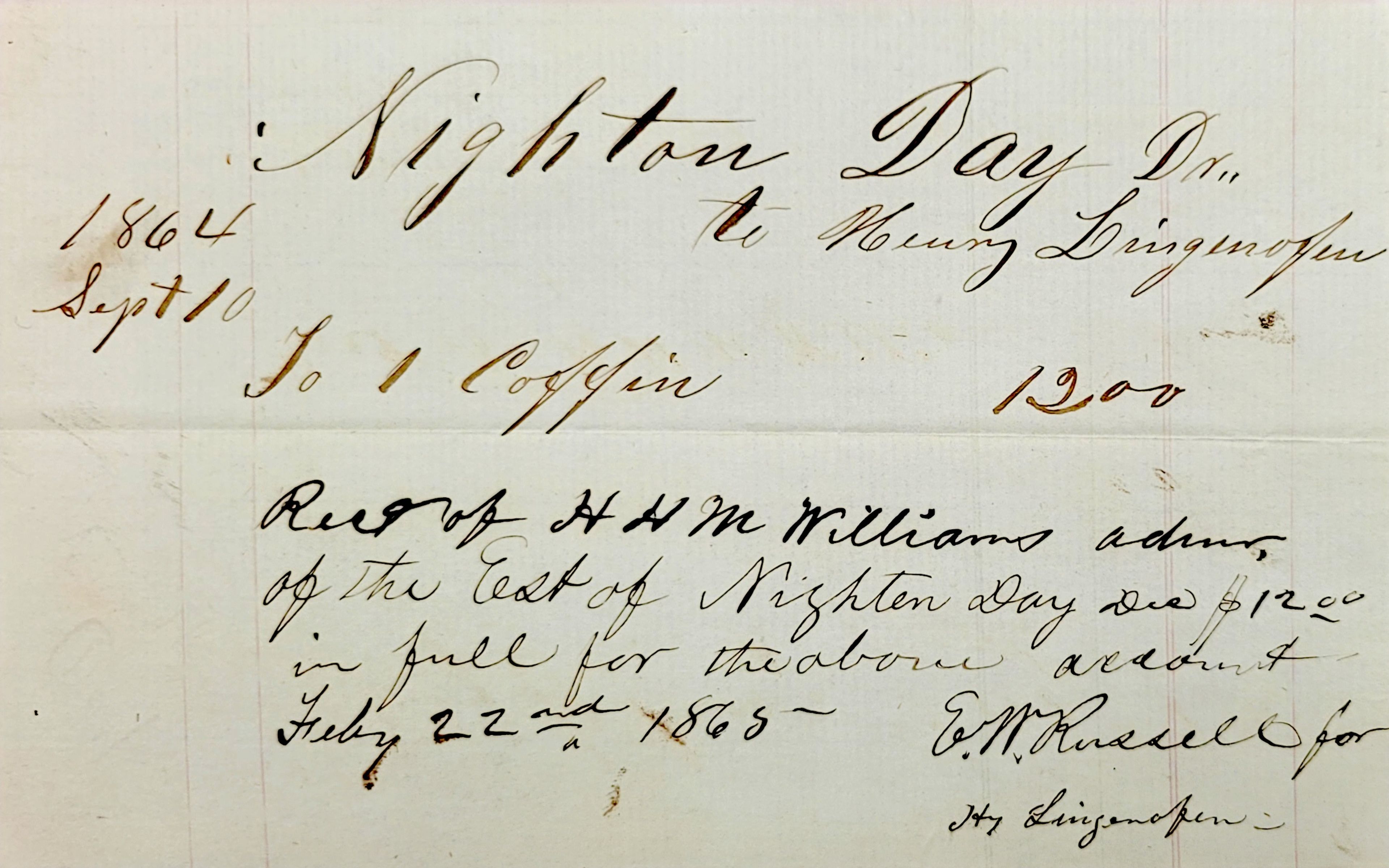Niederkorn: The difference of Nighton Day
Discover the intriguing history of Nighton Day, buried in a small cemetery in Cape Girardeau County. Uncover his life, family ties and the sobering economic impact of slavery during his time.
As I work to update the Cape Girardeau County Archive Center’s cemetery information, the occasional gem crops up. This time, it’s Day Cemetery, north of Oak Ridge in Apple Creek Township, eternal home to exactly two marked burials: Susan Wilson Day and her husband, Nighton.
I had intended to write a column about Nighton (also spelled Nighten and Nightin) Day for my April 2024 offering, because of the eclipse — another night-in-day — but I decided autumn is a better time to talk about cemeteries and retrospective biographical sketches, so here we are, talking about Nighton Day.
He was born Jan. 6, 1804, in Kentucky and died at age 60 in September 1864 in Cape Girardeau County. Nighton is buried in Day Cemetery near Oak Ridge. He was married to Susan Wilson, and they had at least three children: Sarah, Nick and Julia.
His estate papers, or probate record, is held at the Cape Girardeau County Archive Center. These original documents still smell faintly of tobacco smoke, and housed within this slim manila folder are documents detailing his property at the time of his death.
From a book by the late historian Edison Shrum, "Slaves and Slaveowners of Cape Girardeau County", we know that Nighton Day moved to a farm in Apple Creek Township (northern Cape Girardeau County) in the 1830s. Margaret Mates’ "Resource Guide to Slaves, Slaveowners, and Free Blacks of Cape Girardeau County" lists him as owner of 10 enslaved people altogether; in 1850: Gerry, a boy, and Mariah, a girl, no ages given; and in 1864, when his estate was probated, Jerry, age 46, Maria, 40, Polly, 22, Nancy, 1, Harriet, 16, Charles, 12, Dick, 9, and Marion, 4. Gerry and Mariah are noted as being “from the Nicholas Wilson estate.” Nighton’s wife, Susan, was probably Nicholas’ daughter.
Slavery in Missouri did not end with the Emancipation Proclamation in 1863. Since Missouri was a border state and not a member of the Confederacy, the proclamation did not apply. Slavery was abolished here in January 1865. Still, valuations of enslaved people had dropped significantly by Day’s death: In 1859, his tax book listing gave the value of his property as $1,900 for his then-six enslaved people, and the value of his farmland, equipment and livestock was $1,120. In 1863, Day’s seven slaves were valued at $800 total. Then, by the time of Day’s death in 1864, after the Emancipation Proclamation but before the end of slavery in Missouri, the enslaved people were appraised at only $130 total. It is sickening to see these numbers — the idea of putting a monetary value on a human being is and should be horrifying, but to understand economic forces at play during and after the Civil War, it is important to see those forces driving actual numbers.
That Day Cemetery has only two inhabitants means it likely was the family burial ground on the old home place. Susan and Nighton had at least three children, a son and two daughters: son Nicholas Day was a Civil War veteran and is buried at Oak Ridge; daughter Sarah Howard is buried at Millersville; daughter Julia Davis is buried at Fruitland.
Marybeth Niederkorn is the director of the Cape Girardeau County Archive Center in Jackson. She is a member of various societies devoted to the region’s history, and is on Jackson’s Historic Preservation Commission. Educated at Southeast Missouri State University in Cape Girardeau, she holds degrees in philosophy and professional writing.
Connect with the Southeast Missourian Newsroom:
For corrections to this story or other insights for the editor, click here. To submit a letter to the editor, click here. To learn about the Southeast Missourian’s AI Policy, click here.










